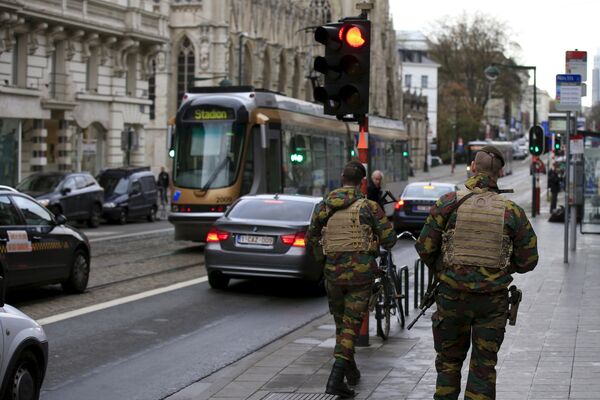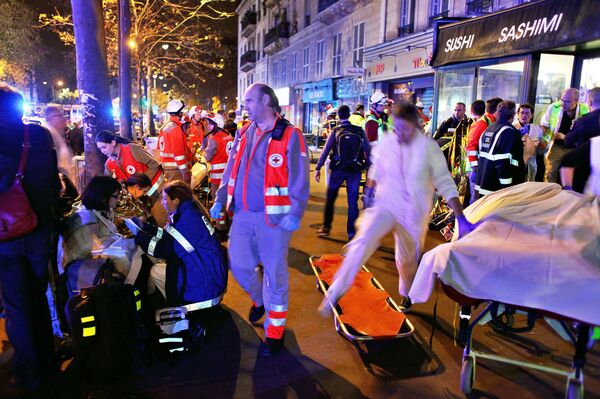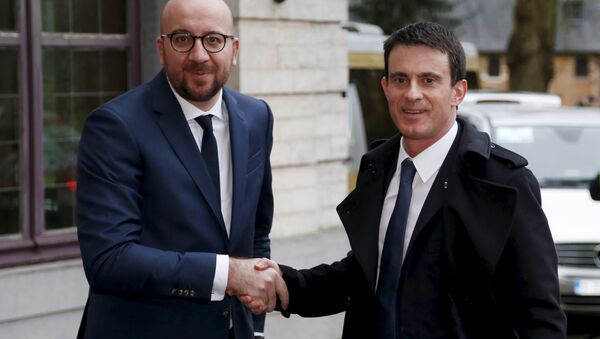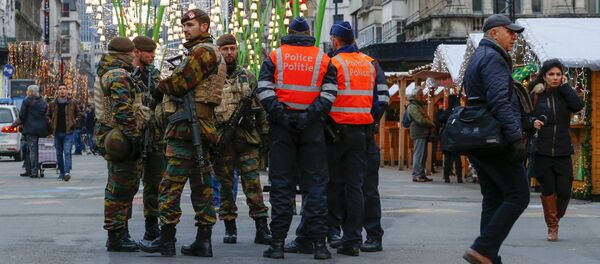Law enforcement and intelligence services in France and Belgium came in for criticism in the wake of the Paris attacks — in which 130 people were killed and hundreds injured in a series of shootings and suicide bomb attacks — when it was revealed many of the terrorists were on the intelligence radar.
Michel and Valls have unveiled an agreement on better information-sharing, the promotion of the Passenger Name Record system — under which all international travelers have all their travel documents cross-checked and saved — as well as the deployment of a French official to work alongside the Belgian authorities on major investigations.
It emerged after the November 13 attacks that Abdelhamid Abaaoud — one of the terrorists who took part in the series of attacks on November 13, 2015 in Paris killing 130 people and injuring hundreds more — was able to cross from Europe by ferry and meet jihadists in the UK, despite having an international arrest warrant out on him.

Intelligence agencies in Europe are facing heavy criticism that one of the November 13 Paris attackers, Salah Abdeslam, from Belgium, was known to the law enforcement services yet managed to buy detonators in France using his driving license as proof of identity.
Free to Roam
The admission comes amid severe criticism of European intelligence agencies for failing to prevent the attacks, in which 130 died and hundreds were injured, despite having most of the attackers on the radar. The ringleader, Abaaoud was able to return from Syria several times via the migrant route of Greece without being detected.
"In challenging times,we must work together" @Avramopoulos-European Counter Terrorism Centre https://t.co/UMLm6bPwE5 pic.twitter.com/8cP0hJehqL
— European Commission (@EU_Commission) January 25, 2016
There was further criticism of the lack of border controls within Europe — under the Schengen agreement — which allowed Abaaoud and his fellow attackers to travel several times between France and Belgium in the run-up to the attacks and — in Abdeslam's case — following the attacks.
It has also emerged that French intelligence agents had interviewed a jihadist who had returned from Syria in June 2015 and who said he had met Abaaoud.
One of the November targets was the Bataclan music venue where most of the 130 people died. Other soft targets were the Stade de France, where a match was being played, cafes and restaurants.

Intelligence sources have told Sputnik the French-Belgian move is more grandstanding to show their backing for their own law enforcement services and that more Pan-European collaboration is the way forward. The Netherlands — which currently hold the presidency of the Council of the EU — is pushing for more powers for law agencies Europol and Interpol to counter terrorism.




